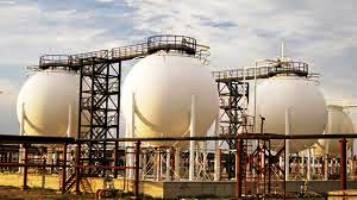Nigeria is sitting on a goldmine of natural gas, with the largest reserves in Africa and ranking among the top 10 globally. Yet, much of this potential remains untapped due to inadequate investment in infrastructure.
According to Dr. Ogbonnaya Orji, Executive Secretary of the Nigeria Extractive Industry Transparency Initiative (NEITI), the country needs a consistent investment of $20 billion annually for the next 10 years to develop the necessary gas infrastructure. He made this known while presenting NEITI’s latest oil and gas industry report to the Senate Committee on Public Accounts.
“We need to invest in gas infrastructure to evacuate our gas. Our study shows that Nigeria requires an initial investment of $20 billion annually for 10 years to generate the kind of infrastructure required,” Dr. Orji stated.
Despite Nigeria’s massive gas wealth, a lack of investment has stalled its potential. With a properly developed infrastructure, gas could serve as a critical driver for power generation, industrial growth, and economic diversification.
Oil revenue and declining performance in the solid minerals sector
Dr. Orji also disclosed that Nigeria earned $831.41 billion from the oil and gas sector between 1999 and 2023, but revenues declined by 13.7% in 2023. Meanwhile, crude oil losses significantly dropped by 78%, from 36.6 million barrels in 2022 to 7.68 million barrels in 2023, signaling improved efforts to combat oil theft.
However, concerns remain over the solid minerals sector, which contributes less than 1% to Nigeria’s GDP. Chairman of the Senate Public Accounts Committee, Sen. Aliyu Wadada, expressed his frustration, calling the sector’s performance “ridiculous and unacceptable.”
“This cannot continue. Nigeria needs a profitable solid minerals sector. There must be a complete overhaul of the sector,” he insisted.
Dr. Orji acknowledged the challenges and emphasized the need to review the Solid Minerals Act of 2007, establish a robust fiscal regime, and consider setting up a National Mining Company to drive investments.
Government efforts and the road ahead
The Nigerian government has recently taken steps to boost gas infrastructure. It launched the construction of five gas plants in Ajaokuta, Kogi State, and has increased investment in Compressed Natural Gas (CNG) for vehicles.
While these efforts are commendable, experts warn that the country still faces a huge infrastructure deficit. Without a steady flow of investments, Nigeria risks missing out on the economic benefits of its vast gas reserves.
The question remains: Will the government and private sector step up to bridge this gap?


